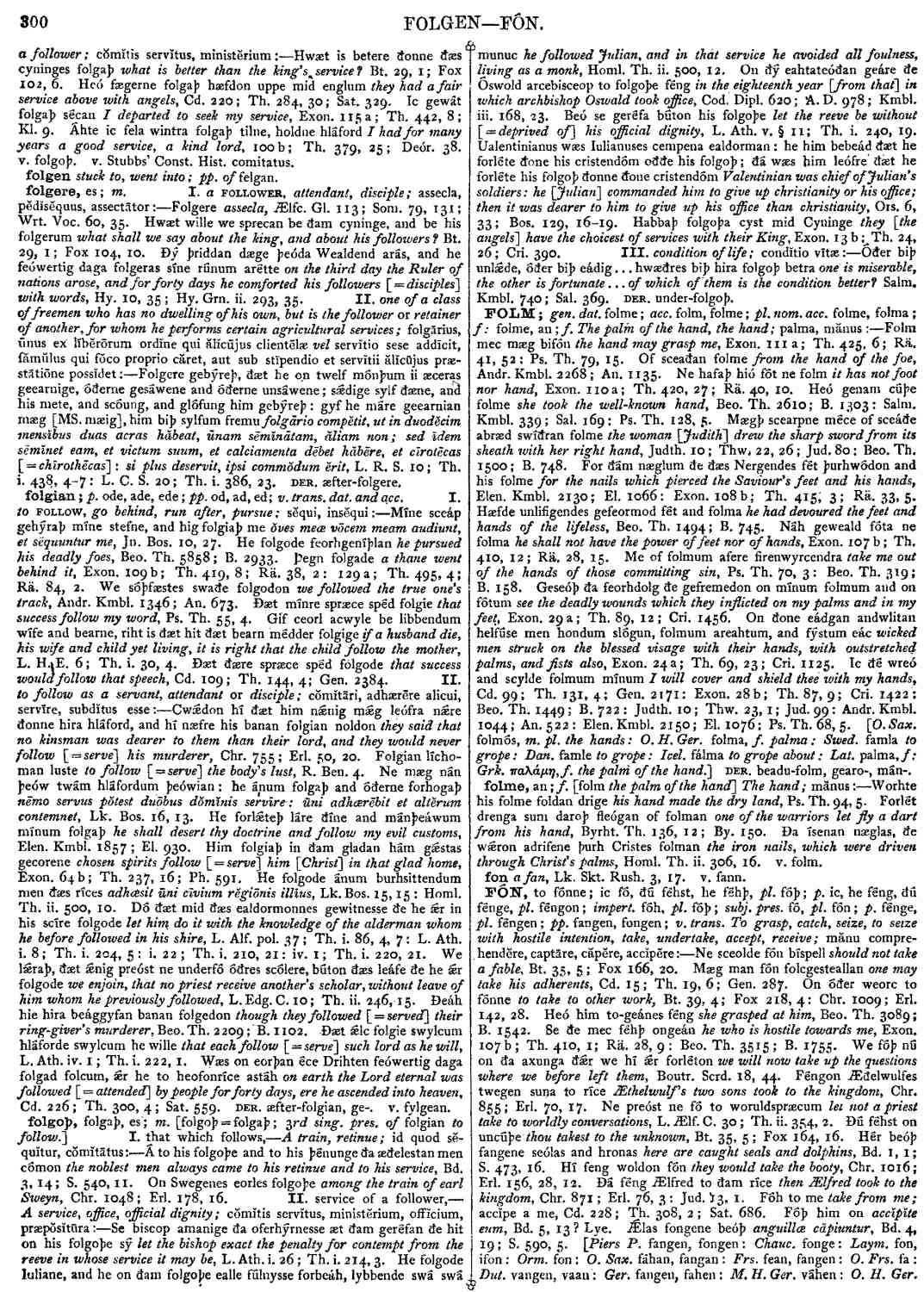folgoþ
- noun [ masculine ]
-
Á to his folgoþe and to his þénunge ða æðelestan men cómon
the noblest men always came to his retinue and to his service,
- Bd. 3, 14 ;
- S. 540, 11.
-
On Swegenes eorles folgoþe
among the train of earl Sweyn,
- Chr. 1048 ;
- Erl. 178, 16.
-
Se biscop amanige ða oferhýrnesse æt ðam geréfan ðe hit on his folgoþe sý
let the bishop exact the penalty for contempt from the reeve in whose service it may be,
- L. Ath. i. 26 ;
- Th. i. 214, 3.
-
He folgode Iuliane, and he on ðam folgoþe ealle fúlnysse forbeáh, lybbende swá swá munuc
he followed Julian, and in that service he avoided all foulness, living as a monk,
- Homl. Th. ii. 500, 12.
-
On ðý eahtateóðan geáre ðe Óswold arcebisceop to folgoþe féng
in the eighteenth year [from that] in which archbishop Oswald took office,
- Cod. Dipl. 620; A. D. 978 ;
- Kmbl. iii. 168, 23.
-
Beó se geréfa búton his folgoþe
let the reeve be without [ = deprived of] his official dignity,
- L. Ath. v. § 11 ;
- Th. i. 240, 19.
-
Ualentinianus wæs Iulianuses cempena ealdorman: he him bebeád ðæt he forléte ðone his cristendóm oððe his folgoþ; ðá wæs him leófre ðæt he forléte his folgoþ ðonne ðone cristendóm
Valentinian was chief of Julian's soldiers: he [Julian] commanded him to give up christianity or his office; then it was dearer to him to give up his office than christianity,
- Ors. 6, 33 ;
- Bos. 129, 16-19.
-
Habbaþ folgoþa cyst mid Cyninge
they [the angels] have the choicest of services with their King,
- Exon. 13b ;
- Th. 24, 26 ;
- Cri. 390.
-
Óðer biþ unlǽde, óðer biþ eádig . . . hwæðres biþ hira folgoþ betra
one is miserable, the other is fortunate . . . of which of them is the condition better?
- Salm. Kmbl. 740 ;
- Sal. 369.
Bosworth, Joseph. “folgoþ.” In An Anglo-Saxon Dictionary Online, edited by Thomas Northcote Toller, Christ Sean, and Ondřej Tichy. Prague: Faculty of Arts, Charles University, 2014. https://bosworthtoller.com/11153.
Checked: 1